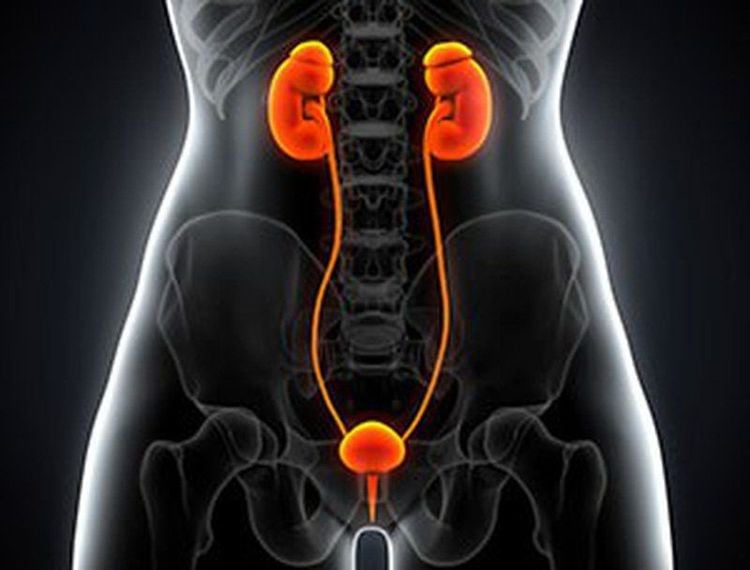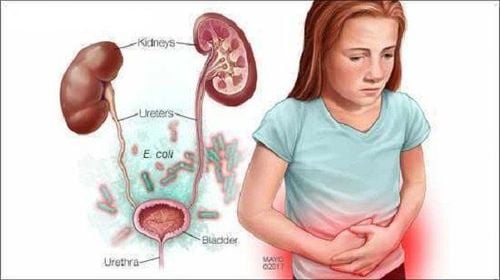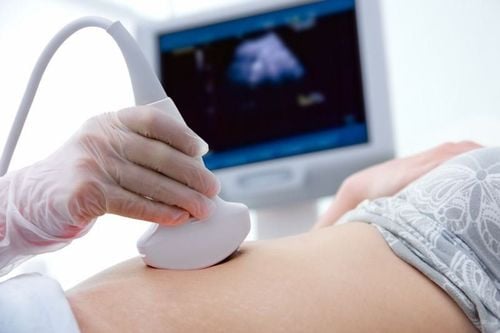This is an automatically translated article.
This article is professionally consulted by Dr. Nguyen Van Thanh - Obstetrician and Gynecologist - Department of Obstetrics and Gynecology - Vinmec Nha Trang International General Hospital. The doctor has many years of experience in the field of Obstetrics and Gynecology.Frequent urination during pregnancy is a problem encountered by most pregnant women, especially in the last months of pregnancy. There are many causes of urinary disorders during pregnancy, the causes may be physiological or pathological manifestations that need to be treated.
1. Signs of urinary disorders during pregnancy
When a woman is pregnant, there are many changes in her body, in which urinary disorders are also very common. This condition can cause discomfort and affect the health of pregnant women, especially frequent urination at night, making pregnant women lack of sleep, not getting enough sleep leading to fatigue.Common manifestations of urinary disorders during pregnancy include:
Frequent urination: During pregnancy, pregnant women see an increase in the number of urinations. Especially in the first 3 months of pregnancy and the last 3 months of pregnancy, the frequency of urination increases markedly. Nocturia: Also a fairly common sign of pregnancy, that most pregnant women encounter. According to research, up to 86% of pregnant women have nocturia in the last 3 months of pregnancy. It has been found that pregnant women excrete larger amounts of sodium and water at night than non-pregnant women. Nocturia should occur.

2. Causes of urinary disorders during pregnancy
Urinary disorders in pregnant women have many causes, it may be a normal physiological manifestation, but it can also be a sign of an infection that needs to be treated.2.1 Physiological causes Due to hormonal changes: Increased levels of HCG hormone are responsible for the dilation of the bladder muscles and uterine wall, and increased blood flow to the pelvis. This puts pressure on the bladder and causes bladder irritation. When receiving stimulation, the bladder will send out signals to the brain, the brain receives signals and interprets these signals as wanting to urinate even though there is not much urine in the bladder. Leads to frequent urination in pregnant women. This sign is also considered an early manifestation in the early weeks of pregnancy.

Urinary-genital infections that can cause urinary disorders in pregnant women include: urethritis, cystitis, pyelonephritis, vaginitis.
When you have infectious diseases, you will see signs such as:
Painful urination, frequent urination, burning when urinating; Possible fever, chills; Cloudy urine, sometimes with blood; Vaginitis shows a lot of discharge, unusual color green, milky white or yellow, genital itching. Sometimes the symptoms of infection are faint, making the pregnant woman not see clearly, so regular antenatal check-ups are essential for early detection of these diseases.
3. How to overcome urinary disorders during pregnancy

To limit nocturia, you should not drink a lot of water before going to bed, the amount of water put into the body should focus on providing during the day. Before going to bed, it is necessary to reduce it, to help pregnant women limit urination at night, to have a better sleep. Avoid drinks with diuretic properties: If you experience frequent urination, you should avoid drinks with diuretic properties, especially in the evening. Urinating before bed: Urinating before going to bed, emptying the bladder will reduce the need to urinate at night. Leaning forward while urinating: Leaning forward while urinating puts pressure on the bladder. Helps the bladder to be able to expel urine, thereby prolonging the time between urination. When you need to urinate, you should urinate immediately: If you hold your urine many times, it can weaken the pelvic floor muscles, leading to urinary incontinence. If you have frequent urination, use tampons when necessary. Do a kegel exercise: Exercise the pelvic floor muscles by acting as if you were preventing urination or defecation. Working out the pelvic floor muscles strengthens the pelvic floor muscles, helps reduce stress urinary incontinence, and eases postpartum recovery. Exercise at least 3 times a day, 10-20 contractions about 10 seconds. You can practice anywhere when you have time. If the condition of urination disorder does not improve or is accompanied by other disorders such as painful urination, frequent urination... Should go to medical facilities to be examined and do paraclinical tests for diagnosis and treatment. treatment.
In short to answer the question is it okay to urinate a lot during pregnancy? It is necessary to know the cause of frequent urination due to physiological or pathological reasons. If the disease needs to be treated to avoid complications affecting the health of mother and baby.
To best protect the health of mother and baby during pregnancy and postpartum, you should use maternity services at reputable hospitals. At Vinmec International General Hospital, there is a package maternity service as a solution to help pregnant women feel secure because of the companionship of the medical team throughout the pregnancy. When choosing Maternity Package, pregnant women can:
The pregnancy process is monitored by a team of highly qualified doctors Regular check-ups, early detection of abnormalities The package pregnancy helps to facilitate convenient for the birthing process Newborns are taken care of comprehensively.
Please dial HOTLINE for more information or register for an appointment HERE. Download MyVinmec app to make appointments faster and to manage your bookings easily.














